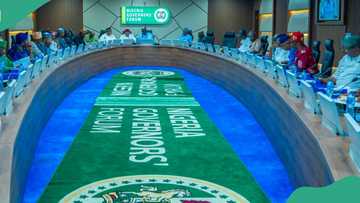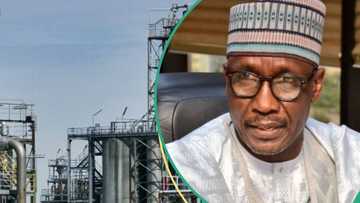Stakeholders Demand Overhaul in Governance to Achieve Nigeria's Just Transition Goals
- Environmentalists, civil society actors, and other stakeholders emphasize the need for Nigeria to reassess its environmental governance plan
- Nigeria aims to become a net-zero economy by 2060, requiring a robust system for measuring, monitoring, reporting, and verifying (MMRV)
- Stakeholders, including Michael Mbaike of Green Waka and Comrade Echezona Asuzu of the Nigeria Labour Congress, advocate for collaborative efforts, proper legislative oversight
FCT, Abuja-Environmentalists, and civil society actors among others say Nigeria urgently needs to reassess its environmental governance plan for it to meet its aim of becoming a low-carbon economy.
Expressing this position on Wednesday, June 26, 2024, in Abuja, during the official launch of the Carbon Literacy Project (CLP) in Nigeria.

Source: Original
Recall that Nigeria is committed to becoming a net-zero economy by 2060 and that to achieve this ambitious goal, a robust system that measures, monitors, reports, and verifies (MMRV) the delivery of these pledges is required.
During the Conference of Parties (COP 26) to the United Nations Framework Convention on Climate Change (UNFCCC) in Glasgow in 2021, Nigeria promised to reduce emissions by 20% unconditionally and 47% conditionally by 2030.
PAY ATTENTION: Click “See First” under the “Following” tab to see Legit.ng News on your Facebook News Feed!
Michael Mbaike’s advocacy for CLP
And, to achieve these goals, Michael Mbaike, co-founder and leader of Green Waka, believes that CLP is both an intervention and an innovation because of its philosophy of involving people in their workplaces, as reported by Vanguard
People are more persuaded and devoted to their employment, he claimed. With its unique concept of bringing superiors and subjects together, there is no question that CLP will encourage the action needed to advance Nigeria's just transition.
He urged stakeholders, particularly the government, to collaborate with Green Waka to create an introduction course that addresses the carbon concerns facing individuals and various sectors.
Comrade Echezona Asuzu's call for oversight
Comrade Echezona Asuzu, Coordinator of the Nigeria Labour Congress' Climate Change, Green Jobs, and Just Transition Programme, emphasised the importance of trade unions and civil society organisations investing in MMRV systems and demanding proper legislative and executive oversight on climate change.
Asuzu voiced his dissatisfaction with the mishandling of the country's ecological funds, referencing a House of Representatives probe that exposed N180 billion in misappropriation.
This is as experts said politicisation with the allocation of ecological funds is inhibiting the country’s efforts to tackle flooding, according to environmental experts, Punch reported.
He said:
"It's alarming that while our political officeholders mishandle ecological funds, communities like Ayetoro face devastating flooding, soil erosion, and coastal erosion."
The labour rights activist questioned the Special Presidential Envoy on Climate Change's vast powers and asked the government to review this position.
He said:
"We need strong institutions, not strong individuals, to drive climate action."

Read also
“Disheartening”: Minister laments 74% youth, adult illiteracy, vows to champion Tinubu's Renewed Hope Agenda
Phil Korbel on the power of people
Phil Korbel, co-founder and director of advocacy at The Carbon Literacy Project, believes that the renewable power that will propel Nigeria to a net-zero future is that of its people.
He stated that urgent action on climate change is driven by facts agreed upon by the world's scientists, but that this language sometimes needs 'translating' so that everyone, whoever and wherever they are, understands its relevance to them.
Korbel said:
“This is what carbon literacy training does. It also enables anyone to devise their best action in such a way as to make it doable. Imagining this happening across the largest nation in Africa is full of great potential, and it’s great to be a part of it."
Olive oil producers adapt to climate change
In another report, Olive oil producers are improving irrigation and seeking new varieties of olives to safeguard production as climate change upends harvests, causing prices of the staple of the Mediterranean diet to soar.
Legit.ng reported that global production of olive oil fell from 3.42 million tonnes in the 2021-2022 season to 2.57 million tonnes in 2022-2023, IOC figures show.
PAY ATTENTION: Stay Informed and follow us on Google News!
Source: Legit.ng




